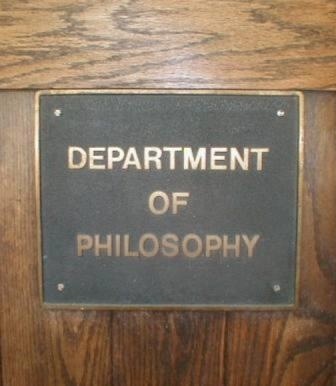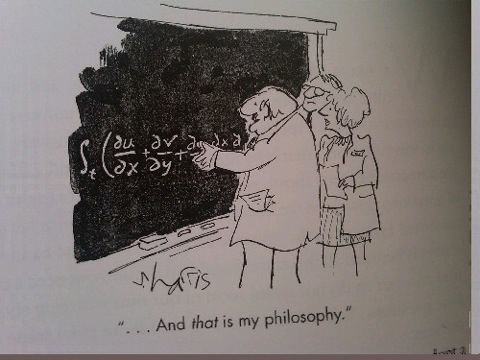When I fell in love with philosophy I did not perceive it as a science but as a part of the humanities. Matter of fact, I did not like what I believed to be the uncreative world of empirical research and knowledge. Although I knew that chemistry and biology helped our lives, I did not feel a calling to that part of academic life. What was interesting to me was the thoughts of Socrates and the ideas of the existentialists. They seemed to answer questions that science could not and those questions were just as important as if energy is created or destroyed.
Now that philosophy is slowly but surely coming to be my profession, I am noticing what seems to be philosophers’ obsession with science, more specifically to be considered more scientific in their practice. So as I look at phd programs at tops schools across the country, there seems to be more of an emphasis on such fields as philosophy of science or philosophy of mind. It is those branches that are beginning to be taken more seriously and it has me asking “what ever happened to philosophy as the humanities”?
I am not anti-science nor am I anti-philosophy of science, etc. However, I believe in retaining the richness of my discipline and refuse to integrate it all into a world that is based on academic acceptance or more program funding. Maybe philosophers feel a need to prove Stephen Hawkings wrong by suggesting that philosophy is not dead. But what it may be doing is proving Rorty and Butler right; that philosophy has no role in public life. I want to suggest that philosophical questions like “what is justice” and “how ought we live” and the use of logical reasoning instead of empirical research are very much important and relevant topics and methods for our time. We can not consider these less valuable. They matter!!
With this in mind, Julian Friedland, has an interesting article in the New York Times this week called “Philosophy Is Not A Science“. In it he argues and I agree:
In sum, philosophy is not science. For it employs the rational tools of logical analysis and conceptual clarification in lieu of empirical measurement. And this approach, when carefully carried out, can yield knowledge at times more reliable and enduring than science, strictly speaking. For scientific measurement is in principle always subject to at least some degree of readjustment based on future observation. Yet sound philosophical argument achieves a measure of immortality.
So if we philosophers want to restore philosophy’s authority in the wider culture, we should not change its name but engage more often with issues of contemporary concern — not so much as scientists but as guardians of reason. This might encourage the wider population to think more critically, that is, to become more philosophical.

